SHOWGIRLS (1995)
A mysterious young drifter hitches a ride to Las Vegas, where she finds work as a stripper...
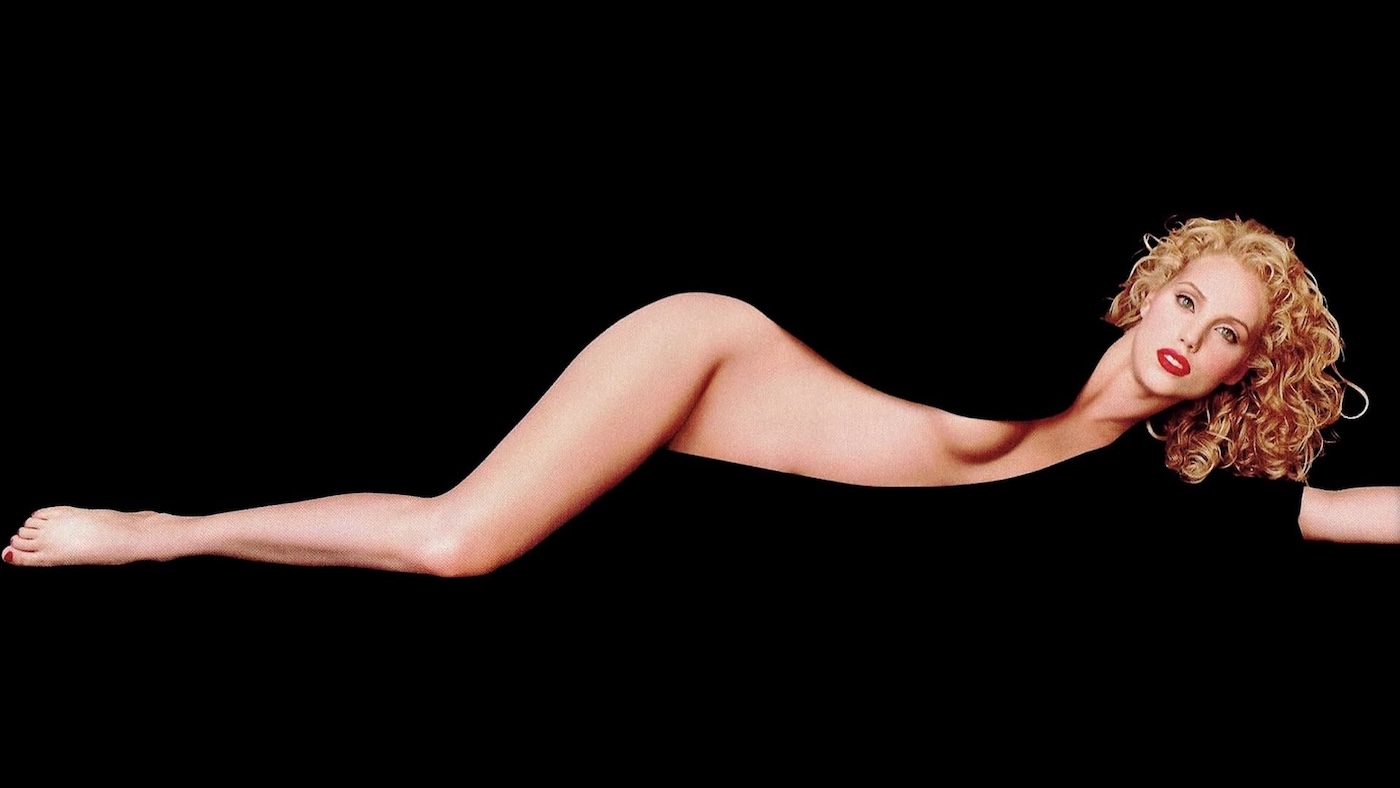
A mysterious young drifter hitches a ride to Las Vegas, where she finds work as a stripper...

Trashy, full of nudity, and frequently ridiculous, Paul Verhoeven’s Showgirls has had one of the most polarising receptions of any film in the last 50 years. Near-universally panned, the movie had a disastrous impact on lead actress Elizabeth Berkley’s career. It certainly didn’t help Berkley’s case that the movie was a box-office bomb, grossing just $37M against a budget of over $40M (though the movie was a tremendous success on the VHS market, for obvious reasons). It won eight Razzies, including for ‘Worst Picture of the Decade’ in 2000. Then, after receiving just about as terrible a reception as one could pray not to garner, the movie semi-officially entered the league of so-bad-it’s-good movies, where ironic enjoyment led to midnight-movie style screenings and home-viewing parties.
But the film has also taken on an entirely new life in some viewers’ minds as a self-aware satire of Hollywood, the entertainment industry, and the damage it wreaks on people’s self-esteem, health, and well-being. Ardent fans of the movie point to Verhoeven’s subsequent film, Starship Troopers (1997), as yet another misunderstood satire from around that time. Time’s been much kinder to Starship Troopers than its contemporaneous reviews, though the same charitability hasn’t been extended nearly as much to Showgirls.
Then again, one could make the argument that Verhoeven and screenwriter Joe Eszterhas were simply looking to capitalise on the success of their erotic thriller Basic Instinct (1992). If that’s to be believed, then Showgirls is a total failure. Nudity is frequently present in the movie, with lengthy dance sequences that have less and less purpose the longer they go on for (and the further one gets into this 131-minute movie). The film’s eroticism can only come from the bodies it depicts, not how it depicts them. But, if Showgirls is instead viewed as a satire, it warrants an entirely different conversation.
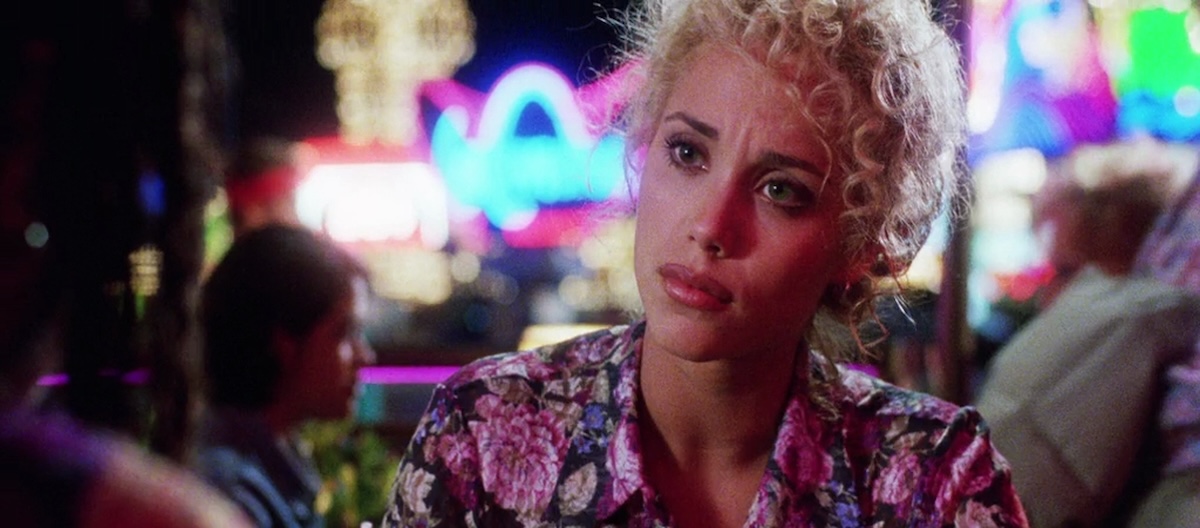
It’s impossible to mediate a balance between ardent fans of the movie and those who see it as complete dreck. For this alone, Showgirls is well worth watching, where consuming the litany of diverse reactions to the film proves even more amusing than the movie itself. I find it hard to believe that there are people who take each and every line of dialogue in this movie seriously. Even if one doesn’t see it as a satire, the sheer ridiculousness and the way it basks in trashiness make it clear that many of its attempts at drama are ironic. The movie’s flashiness and Berkley’s good looks do little to disguise how little it cares about enticing viewers. In fact, this is where it works best as a satire, luring in horny men to a two-hour tale of exploitation and degradation, with barely any sex but constant, lurid nudity, before climaxing with an act of violence whose brutality is matched by its abruptness.
The film follows Nomi (Berkley), a mysterious young drifter who uses her good looks, determination, pettiness, and impulsivity to forge a career for herself as a pole dancer/stripper in Las Vegas. After arriving with nothing to show for herself but a dream and a suitcase that is quickly stolen, Nomi’s scouted by Stardust Casino as a member of their topless dance revue. Her time in Vegas is marked by sleazy men and cutthroat women, each of whom are predatory in their own way—two necessary vipers of an industry that feeds off of beauty and appears to do everything in its power to break the spirits of even its most resilient performers.
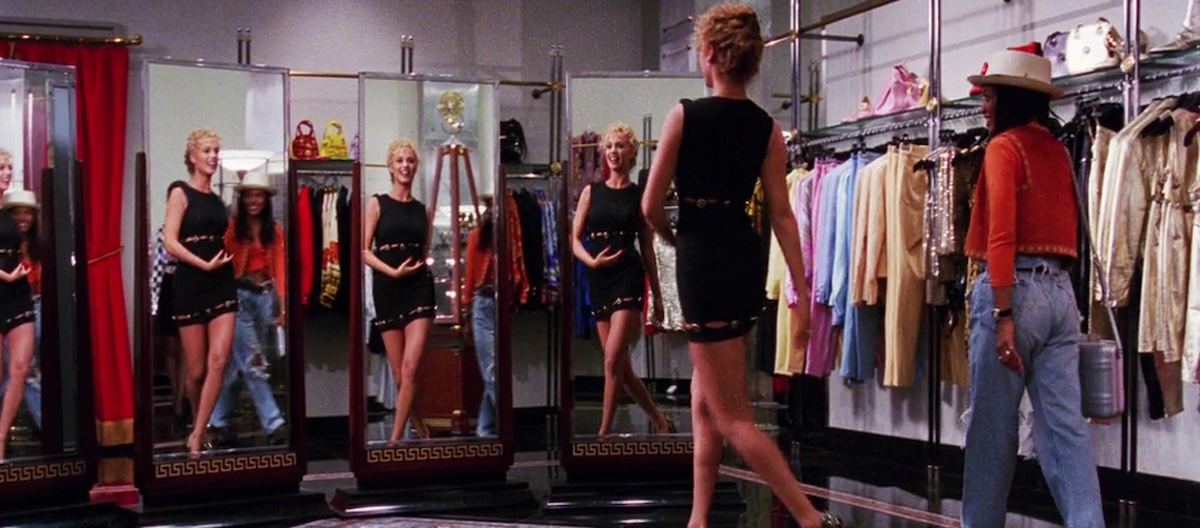
Showgirls is no masterpiece, but it shouldn’t be dismissed either. The film is a curious experiment that is frequently entertaining, but at the same time, it often feels like an endurance test. The dance scenes become very cumbersome after a while, and though there are always wheels slowly turning in this film as it ebbs and flows towards a tragi-comic conclusion, the story isn’t exactly absorbing. It’s silly, frivolous stuff whose surface-level entertainment loses its charm the longer you spend time in this world, even when one can appreciate how extraordinary it is that a movie of this kind ever got made. Quentin Tarantino, who is, unsurprisingly, a big fan of the movie, celebrated it as a “full-on, gigantic, big-budget exploitation movie.”
Whether one believes that the movie is irredeemable, a parody of stories revolving around stardom and the American Dream, or a camp masterpiece playing into its absurd qualities for the sake of eliciting laughs, there are at least a few scenes that fail to neatly tie into these disparate opinions. The movie’s ability to establish some kind of timeline of its events is nonsensical, but that’s one area that strikes me as a deliberate effort to capture the head-rush that is this strange world. It’s nothing but ugly—people, men in particular, are painted as harshly as possible, and women’s bodies are nothing more than playthings to use and abuse at every turn—and yet being in this space offers a unique contact high. How can a world be both disgustingly ugly and near-impossible to live without? Through its unconventional sense of chronology, where the events of the film simultaneously feel as if they take place over the course of just a week and a whole year, Showgirls strikes that balance.
There are moments that are truly hilarious (though not nearly as frequent as those who adore the movie for its comedy are keen to attest). The reveal of the meaning behind Nomi’s name or her seizure-like thrusts when she’s gyrating on Stardust Casino owner Zack (Kyle Maclachlan) are comic brilliance. But then there are characters like James Smith (Glenn Plummer), a sympathetic figure who exists as a plot contrivance for a story that often feels like it has only a rough guide for a plot. He dips in and out of this story for no good reason, and while his presence as the only semi-authentic (or semi-decent) man in Nomi’s life is clear, it doesn’t serve any purpose on an emotional level. There’s the start of an intriguing rapport, but nothing is built off of it; no heartache, no wistfulness, and not a speck of humour in sight.
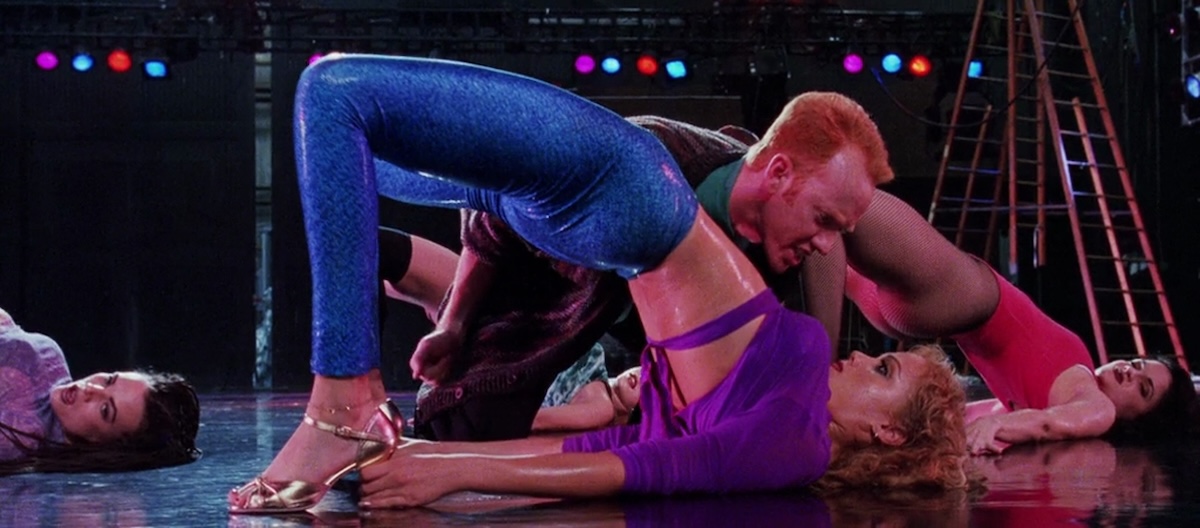
Many of Showgirls’ scenes exist in this weird sludge of an art-pop film crossed with a campy, trashier one, with occasional glimmers of a movie using its uniquely ridiculous tone to mock Hollywood’s fascination with stardom and rags-to-riches stories. Then there is just downright dreadful dialogue that’s a chore to sit through regardless of whether it wants you to take it seriously or not. Showgirls is best viewed as a wild experiment rather than a complete failure or masterpiece, but because of its overindulgence and powerful fail-safe in the form of irony, the wildly different opinions formed on this movie usually remain perfectly insulated.
If there’s any great tragedy to reflect on in the wake of Showgirls’ reception, it’s how much it tarnished Elizabeth Berkley’s chances of maintaining a career as a movie star—a career move she’d only just embarked on when she appeared in Verhoeven’s film. In recent years the Dutch filmmaker has stated that he feels responsible for not just the film’s reception, but the way in which her performance was eviscerated by critics, the press, and the general public. He claims that he instructed Berkley to behave in an odd, over-the-top way throughout filming, regularly giving her notes to guide her in that direction.
I see little difference between Berkley’s acting compared to the rest of the cast, aside from the fact that she’s clearly playing the most batshit crazy member of this ensemble. With that in mind, the absurd overacting fits perfectly with Verhoeven’s tone, which is no easy task to accomplish given Showgirls’ bizarre nature. It’s entirely possible that Berkley doesn’t have much acting range, or that this performance and the eccentric qualities it required masked the fact that she isn’t a talented actress, but I see no indication that she doesn’t understand what kind of movie she’s in from her performance in it. Far more fascinating than the film itself is the fact that viewers of all kinds feel they perfectly understand what Showgirls is attempting, with its wide-ranging reactions helping to form a compelling, enduring conversation piece that the film’s merits and contents only somewhat earn.
FRANCE • USA | 1995 | 131 MINUTES | 2.39:1 | COLOUR | ENGLISH

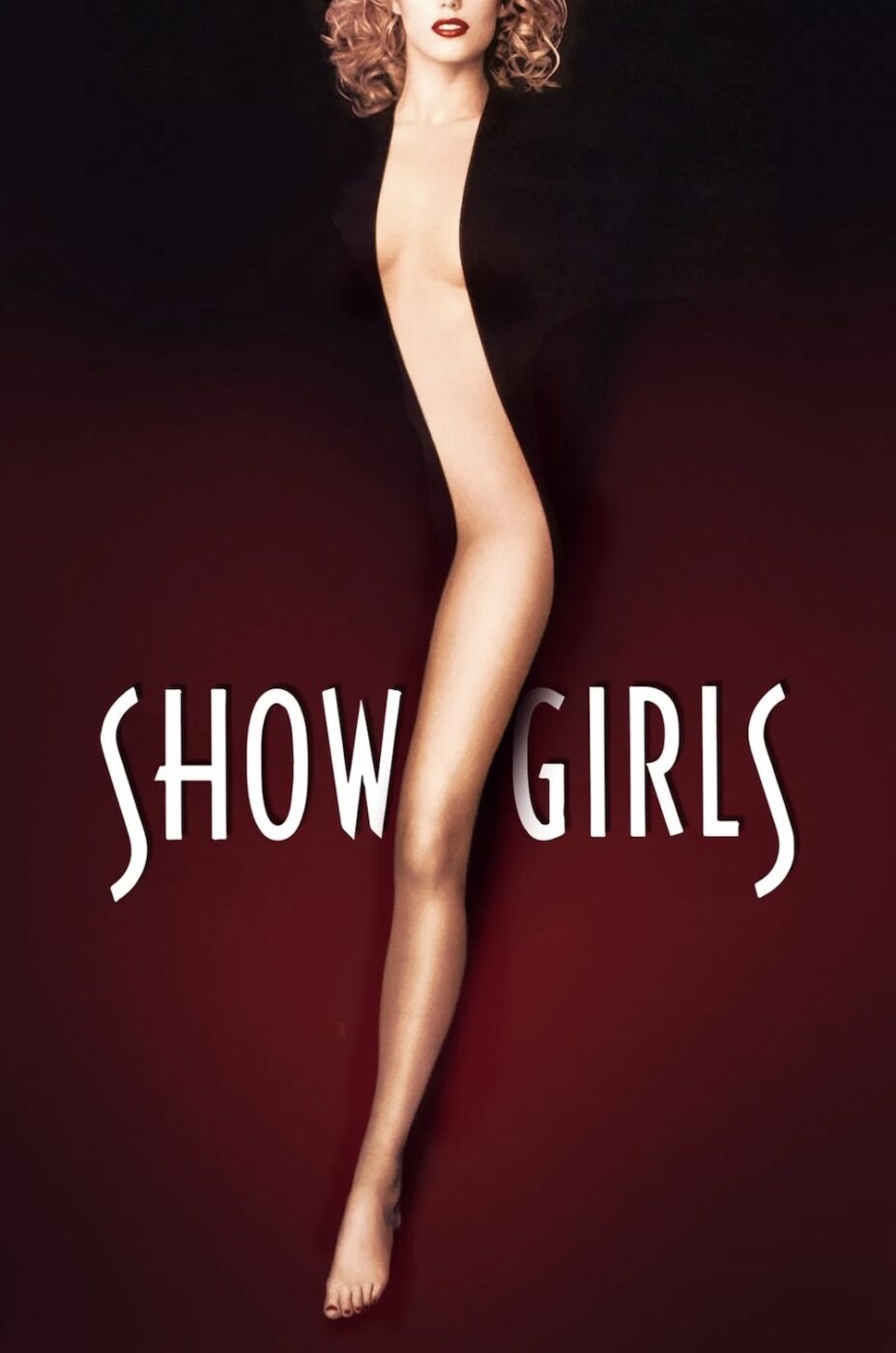
director: Paul Verhoeven.
writer: Joe Eszterhas.
starring: Elizabeth Berkley, Gina Gershon, Kyle MacLachlan, Gina Ravera, Robert Davi, Glenn Plummer, Alan Rachins, Rena Riffel & Lin Tucci.
